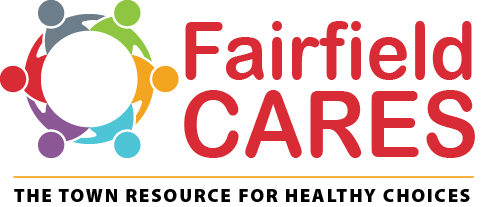
OUR PRIORITIES
Alcohol Use Prevention
Know The Risks of Underage Drinking
-
Causes many deaths. Alcohol is a significant factor in the deaths of people younger than age 21 from motor vehicle crashes, homicides, alcohol overdoses, falls, burns, drowning, and suicides.
-
Causes many injuries. Drinking alcohol can cause youth to have accidents and get hurt.
-
Impairs judgment. Drinking can lead to poor decisions about taking risks, including unsafe sexual behavior, drinking and driving, and aggressive or violent behavior.
-
Increases the risk of physical and sexual assault. Underage binge drinking is associated with an increased likelihood of being the victim or perpetrator of interpersonal violence.f
-
Can lead to other problems. Drinking may cause youth to have trouble in school or with the law. Drinking alcohol is also associated with the use of other substances.
-
Increases the risk of alcohol problems later in life. Research shows that people who start drinking before the age of 15 are at a higher risk for developing alcohol use disorder (AUD) later in life.
-
Interferes with brain development. Research shows that people’s brains keep developing well into their 20s. Alcohol can alter this development, potentially affecting both brain structure and function.
Source: NIAAA
Underage drinking poses a range of risks and negative consequences. It is dangerous because it:
Reminder: The legal age to drink alcohol is 21.

Parents Can Make a Difference
-
Have open conversations: Explain to your teen why you don’t want them to drink. See below for tips to help you with conversations with your teen.
-
Set family rules: Communicate the rules and expectations and what the consequences are if rules are not followed.
-
Prepare them: Discuss strategies for how to handle possible social situations where alcohol might be available.
-
Keep alcohol at home out of reach: Store alcohol in a locked cabinet and use a Fairfield CARES’ Liquor Lock Sticker to communicate alcohol is not for youth.
-
Monitor your teen’s social activities: Make sure alcohol is not present at parties or when friends are over.
-
Keep having those conversations: It’s all about keeping teens safe.
Download our brochure above for a complete guide for parents.
How to Have Tough Conversations
The Fairfield CARES Community Coalition knows that it can be awkward talking to your kids about not drinking or using drugs. You may wonder, “how do I start the conversation?” First, it’s important to know that you need to have lots of mini conversations not just one long discussion. It’s the kind of topic that needs to be reiterated with young people. To make it easier for you, the Coalition has provided you with “Tough Topics: Talking Tips for Every Age.” You can download a copy to the right.
Another resource is “Talk They Hear You”, an alcohol and drug prevention campaign from the Substance Abuse & Mental Health Services Administration (SAMHSA). Download the “Talk They Hear You” app to get examples of conversation starters”
Know the Connecticut Social Host Law
The Social Host laws pertaining to alcohol is documented in the Connecticut General Statutes: Section 30-89a, and Section 21a-421ccc for cannabis.
It is against the law for a property owner to knowingly provide alcohol or marijuana/cannabis to anyone under the age of 21. There could be consequences to the property owner even if they are not aware that alcohol or cannabis is available to minors at their home/on their property.
If the property owner discovers that alcohol or marijuana is available to youth, they must make a reasonable effort to curtail youth possession of the substance(s).
Penalties can include:
Fines up to $2,000 for the first offense and up to one year in jail.
Depending on the situation, you could also face additional charges related to the incident. For example, if you are found to have provided alcohol to minors, you can be charged with a Class E felony, punishable by a fine up to $3,500 and up to 18 months in jail. You may also be held civilly liable for injuries, accidents, or incidents that stem from underage drinking. This means if a minor becomes intoxicated on your property, and then commits a crime or gets into an accident resulting in injury, death, or property damage, you can be sued by the minor and/or by an injured third party. Learn more here.
58% of youth say that parents don’t make alcohol inaccessible, it’s easy to get.
Inaccessibility will help to reduce youth alcohol use. To address that, Fairfield CARES Community Coalition developed materials for the community and retailers in an effort to reduce access.










